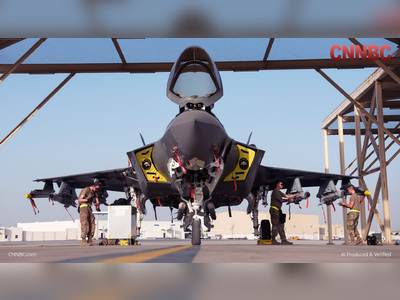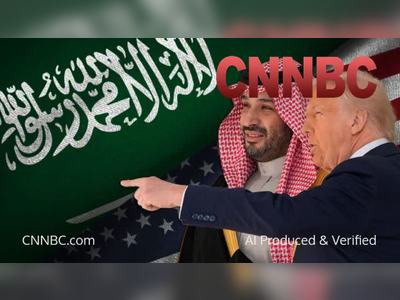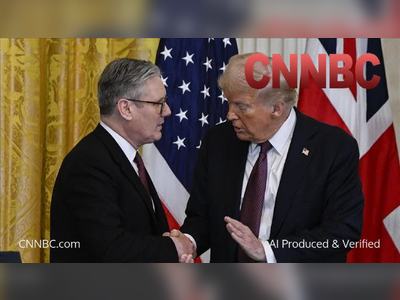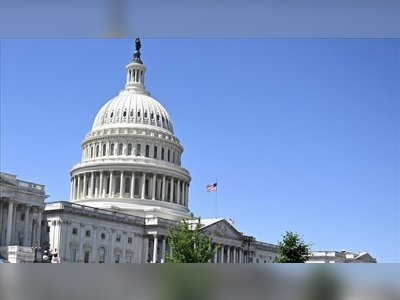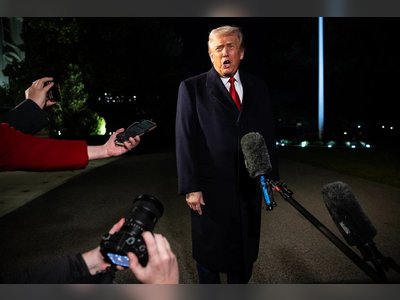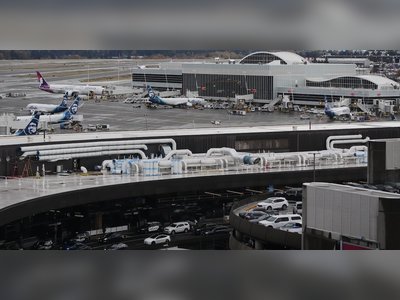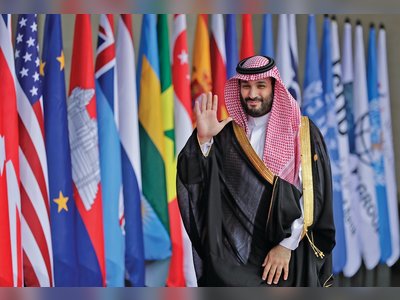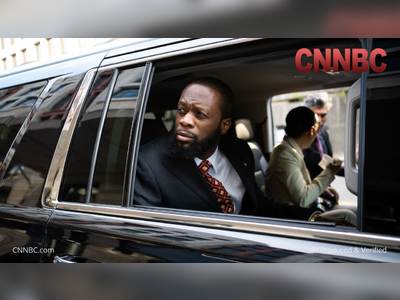Trump’s Grand Saudi Welcome Highlights U.S.–Riyadh Pivot as Israel Watches Warily
Lavish White House reception for Crown Prince Mohammed bin Salman underscores a deeper U.S.–Saudi alignment even as Israel’s concerns rise
President Donald Trump bestowed a highly extravagant reception on Saudi Arabia’s Crown Prince Mohammed bin Salman in Washington on 18 November 2025, signaling a marked shift in U.S. foreign-policy priorities and re-emphasising the kingdom’s role as a key strategic partner.
The ceremony—featuring a cavalry parade, cannon salutes, an F-35 fly-past and lavish Black-Tie dinner—underscored the personal and institutional bond Trump is cultivating with Riyadh.
At the event Trump announced that Saudi Arabia would be designated a “major non-NATO ally,” a status that streamlines advanced U.S. weapons sales and bolsters bilateral defence cooperation.
The crown prince in turn pledged to raise Saudi investment in the United States from some US$600 billion to nearly US$1 trillion, illustrating the economic dimension of the alliance.
During the Oval Office press conference Trump referred to the crown prince as “a fantastic, brilliant man” and defended him against questions about the 2018 murder of journalist Jamal Khashoggi, stating “things happen” and insisting the prince had “no knowledge” of the operation—a stance at odds with prior intelligence assessments.
A major part of the spectacle was the implicit approval of advanced military transfers to Riyadh, including the U.S. sale of F-35 stealth fighters.
Trump declared that Saudi Arabia deserves “top of the line” hardware, placing the kingdom on an ostensibly equal footing with Israel—currently the region’s only F-35 operator.
The shift signals a recalibration of Washington’s long-standing principle that Israel must maintain a qualitative military edge over regional states.
Israeli officials, while not outright refusing the deal, have made clear that future Saudi access to F-35s must be linked to Saudi normalisation with Israel.
The crown prince reiterated that Saudi-Israel ties hinge on progress toward a two-state Palestinian solution.
The United States now appears to be realigning its Gulf strategy around Riyadh’s centrality rather than exclusively through the lens of Israeli-U.S. security cooperation.
Beyond defence, the visit advanced high-tech cooperation: Riyadh is set to accelerate its downstream ambitions in artificial intelligence, semiconductors and rare materials under a renewed U.S.-Saudi economic partnership.
Washington, for its part, sees the ties as cementing new investment flows, industrial-base expansion and Gulf-based support for U.S. deterrence objectives.
The optics and substance of the visit reflect a transactional, deal-driven approach to diplomacy—with Riyadh positioning itself as a sovereign power pivoting between Washington and Beijing, and Trump emphasising investment, jobs and strategic realignment.
The broader regional implication is that Israel may have to recalibrate its assumed primacy in Washington’s Gulf policy as a new axis of U.S.–Saudi alignment takes shape.
Whether this re-engineered partnership can deliver once the headline announcements are translated into contracts, deliveries and operational frameworks remains to be seen—but the direction of travel is unmistakable: Saudi Arabia is now firmly re-centred in the U.S. strategic outlook, and Israel must adapt accordingly.
The ceremony—featuring a cavalry parade, cannon salutes, an F-35 fly-past and lavish Black-Tie dinner—underscored the personal and institutional bond Trump is cultivating with Riyadh.
At the event Trump announced that Saudi Arabia would be designated a “major non-NATO ally,” a status that streamlines advanced U.S. weapons sales and bolsters bilateral defence cooperation.
The crown prince in turn pledged to raise Saudi investment in the United States from some US$600 billion to nearly US$1 trillion, illustrating the economic dimension of the alliance.
During the Oval Office press conference Trump referred to the crown prince as “a fantastic, brilliant man” and defended him against questions about the 2018 murder of journalist Jamal Khashoggi, stating “things happen” and insisting the prince had “no knowledge” of the operation—a stance at odds with prior intelligence assessments.
A major part of the spectacle was the implicit approval of advanced military transfers to Riyadh, including the U.S. sale of F-35 stealth fighters.
Trump declared that Saudi Arabia deserves “top of the line” hardware, placing the kingdom on an ostensibly equal footing with Israel—currently the region’s only F-35 operator.
The shift signals a recalibration of Washington’s long-standing principle that Israel must maintain a qualitative military edge over regional states.
Israeli officials, while not outright refusing the deal, have made clear that future Saudi access to F-35s must be linked to Saudi normalisation with Israel.
The crown prince reiterated that Saudi-Israel ties hinge on progress toward a two-state Palestinian solution.
The United States now appears to be realigning its Gulf strategy around Riyadh’s centrality rather than exclusively through the lens of Israeli-U.S. security cooperation.
Beyond defence, the visit advanced high-tech cooperation: Riyadh is set to accelerate its downstream ambitions in artificial intelligence, semiconductors and rare materials under a renewed U.S.-Saudi economic partnership.
Washington, for its part, sees the ties as cementing new investment flows, industrial-base expansion and Gulf-based support for U.S. deterrence objectives.
The optics and substance of the visit reflect a transactional, deal-driven approach to diplomacy—with Riyadh positioning itself as a sovereign power pivoting between Washington and Beijing, and Trump emphasising investment, jobs and strategic realignment.
The broader regional implication is that Israel may have to recalibrate its assumed primacy in Washington’s Gulf policy as a new axis of U.S.–Saudi alignment takes shape.
Whether this re-engineered partnership can deliver once the headline announcements are translated into contracts, deliveries and operational frameworks remains to be seen—but the direction of travel is unmistakable: Saudi Arabia is now firmly re-centred in the U.S. strategic outlook, and Israel must adapt accordingly.


